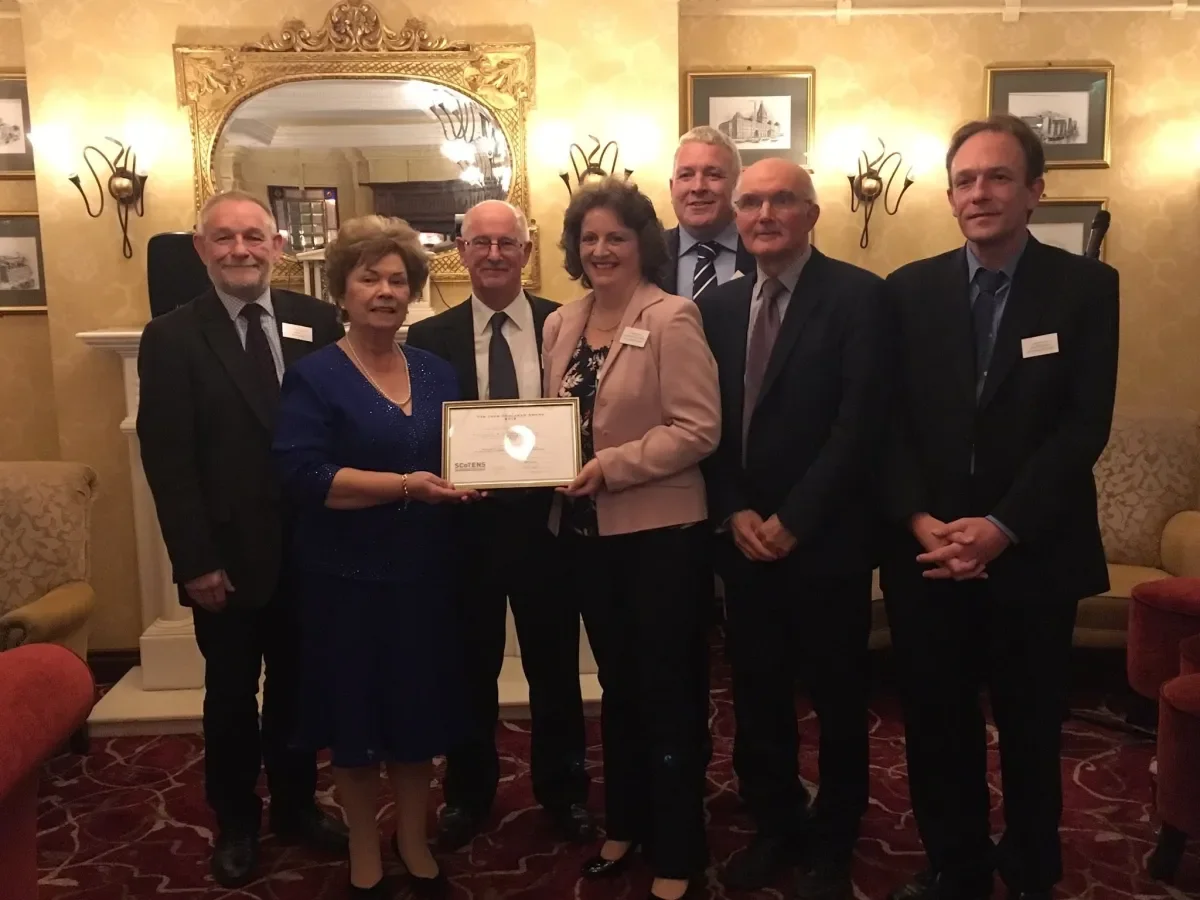

EQI Researchers Win Inaugural John Coolahan SCOTENS Award
Teacher Education Tutors' Practice in ICT: North and South study shows attitudes on ICT vary greatly between ages, locations and subjects
Dr. Martin Brown and Prof Joe O’Hara of the Centre for Evaluation, Quality and Inspection at the DCU Institute of Education have been awarded the Inagural John Coolahan Award by the Standing Conference on Teacher Education, North and South for research into ICT use in Initial Teacher Education conducted with colleagues in Queens University and Ulster University.
The award was named in honour of Prof John Coolahan, former Chair of the Governing Body of St. Patrick’s College Drumcondra and driving force behind the establishment of SCOTENS. Prof Coolahan, who passed away earlier this year, was a pivotal figure in the history of Irish Education who played a crucial part in the redesign and reconceptualisation of research and practice across the continuum of education. The award was created by SCOTENS both to honour the memory of Prof Coolahan and to recognise outstanding educational research that brought together professionals from both the Republic of Ireland and Northern Ireland.
Funded by the Standing Conference on Teacher Education, North and South (SCoTENS*), the research explored teachers educators use of ICT on the island of Irealand. It was conducted between 2016-2018 and comprised a comprehensive survey, lecture observations and a series of interviews that was carried out by Dr.Martin Brown and Professor Joe O'Hara from DCU from the South of Ireland together with researchers from Northern Ireland: Dr.Pamella Cowan (Queens University), Professor Roger Austin and Dr. Stephen Roulston (Ulster University).
Key findings derived from the research suggest that:
- Female tutors who lecture students in teacher training institutions in Ireland are more positively disposed to using ICT than their male counterparts (Whereas Females had a mean score of ~= 3.8 for Optimism and 3.4 Innovativeness, males had a mean score of 3.2 for Optimism and 2.8 for Innovativeness. Also, Females had less discomfort with use of technology than Males. Whereas Females had a mean score of ~=2.7 for discomfort, Males had a mean score of ~= 3.0.)
- Broadband connectivity for tutors and students differs greatly between Northern Ireland and the Republic of Ireland, impacting directly on teaching and learning; • More mature tutors appear to be overwhelmed by the pace of change of ICT; • Youngest tutors (1-3 years' experience) expressed lower levels of innovation than 'mid-career' tutors (4-20 years' experience);
- Tutors working in STEM subjects scored higher for Optimism and Innovativeness (and lower for Discomfort) in using ICT, compared to non-STEM colleagues;
- Geographical location of many student teachers' placement determines the extent to which they can embrace technology;
- Note: The survey was piloted among eight teacher trainers, before being distributed to eight teacher training institutions on the island of Ireland. A total of 37 tutor responses were received. A series of lecture observations were conducted across participating institutions, where the use of ICT by tutors and their students training to be teachers was examined during a number of two-hour lectures. A total of 12 one-hour interviews were conducted with tutors. All teacher trainers who participated in this study were between 30 and 70 years-old. Almost one-third were either 30-39 years-old or 40-49 years-old. A quarter of the group was 50-59 years-old and just over one-tenth was in their sixties.
- SCoTENS: A network of 37 colleges of education, university education departments, teaching councils, curriculum councils, education trade unions and education centres.
